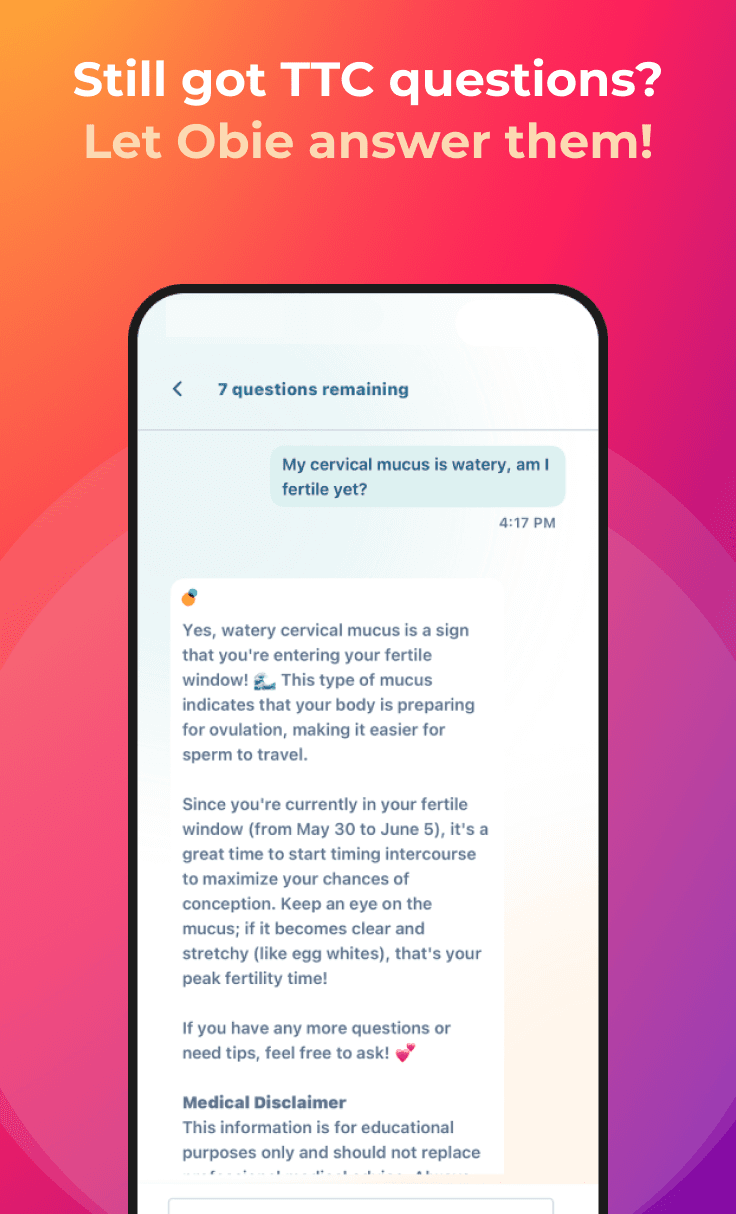Nutritional Optimization for Fertility: Fueling Your Body for Conception
Obie Editorial Team

When planning for pregnancy, nutrition plays a vital role in boosting fertility and creating the best possible environment for a developing baby. What you eat can influence hormone balance, egg quality, and sperm health. By making strategic changes to your diet, you can enhance your chances of conception and improve pregnancy outcomes.
Why Nutrition Matters for Fertility
Research shows that certain dietary patterns can significantly impact fertility. According to Gaskins and Chavarro (2018), diets high in unsaturated fats, whole grains, vegetables, and fish are linked to improved fertility outcomes for both men and women. These foods are rich in key nutrients that support reproductive health, such as antioxidants, omega-3 fatty acids, and vitamins crucial for cell function and hormonal balance.
On the other hand, diets heavy in processed foods, trans fats, and refined carbohydrates have been linked to reduced fertility. Understanding these connections can help individuals make informed dietary choices when planning for pregnancy.
The Science Behind Fertility Nutrition
The research by Gaskins and Chavarro (2018) highlights how nutrition impacts key reproductive processes:
- Egg Quality: Nutrients like folate, vitamin D, and omega-3 fatty acids are essential for healthy egg development.
- Ovulation: A diet rich in plant-based protein, rather than excessive animal protein, has been shown to promote better ovulatory function.
- Sperm Health: Antioxidants such as vitamin C, vitamin E, and selenium protect sperm from oxidative stress, improving sperm count and motility.
Nutrient-rich diets also reduce inflammation and help regulate insulin levels, both of which can support hormonal balance and reproductive function.
Practical Nutritional Strategies to Boost Fertility
To optimize fertility through nutrition, consider the following actionable steps:
1. Focus on Whole Foods:
- Prioritize fresh fruits and vegetables, whole grains, and healthy fats such as olive oil and avocados.
- Include lean protein sources like beans, lentils, and fish, which offer essential amino acids and healthy fats.
2. Increase Omega-3 Intake:
- Omega-3 fatty acids are crucial for hormone production and egg health.
- Add fatty fish like salmon, sardines, or mackerel to your diet 1-2 times per week.
- If you don’t consume fish, consider an algae-based omega-3 supplement.
3. Emphasize Plant-Based Proteins:
- Swap some animal protein for plant-based options such as tofu, beans, and quinoa to improve ovulation rates.
4. Limit Trans Fats and Processed Foods:
- Avoid fried foods, packaged snacks, and hydrogenated oils, which have been linked to lower fertility rates.
5. Incorporate Fertility-Friendly Nutrients:
- Folic Acid: Aim for 400-600 mcg daily to reduce the risk of neural tube defects and improve egg quality.
- Vitamin D: Supports hormone regulation and enhances fertility outcomes; consider supplements if your levels are low.
- Iron: Found in leafy greens, lentils, and fortified grains to support healthy blood flow and oxygen delivery.
6. Balance Blood Sugar Levels:
- Focus on complex carbohydrates like whole grains, quinoa, and sweet potatoes to stabilize blood sugar and reduce insulin spikes.
- Limit processed sugar and refined carbs, which can disrupt hormonal balance.
7. Maintain a Healthy Weight:
- Being underweight or overweight can interfere with ovulation and sperm production.
- Aim for a balanced diet that supports a healthy body weight through nutrient-dense meals.
The Partner's Role in Fertility Nutrition
It’s important to remember that nutrition isn’t just for the person carrying the baby. Sperm quality can be improved with a nutrient-rich diet as well. Encourage partners to adopt fertility-boosting dietary habits such as:
- Consuming more zinc-rich foods like pumpkin seeds, chickpeas, and nuts.
- Prioritizing antioxidants to protect sperm from damage.
- Limiting alcohol intake and avoiding tobacco products to protect sperm quality.
Final Thoughts
Optimizing your nutrition before pregnancy is one of the most powerful steps you can take to improve your fertility and support a healthy pregnancy. By embracing a balanced, nutrient-dense diet, you create the ideal conditions for conception and lay the groundwork for your baby’s long-term health. Small, sustainable changes in your eating habits can make a significant difference in your fertility journey.
Reference: Gaskins, A. J., & Chavarro, J. E. (2018). Diet and fertility: a review. American Journal of Obstetrics and Gynecology, 218(4), 379-389.








